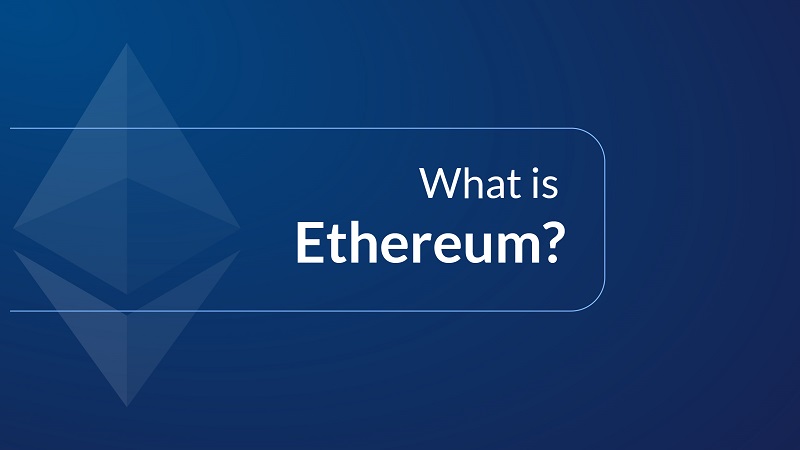Bitcoin is a digital currency that operates on a decentralized network known as blockchain technology. It was invented in 2008 by an unknown person or group of people using the pseudonym Satoshi Nakamoto and was released as open-source software in 2009. Since its inception, Bitcoin has garnered significant attention and controversy, becoming a symbol of the potential for decentralized finance and disrupting traditional financial systems.
At its core, Bitcoin is a form of digital currency, but its significance extends far beyond mere transactions. It represents a fundamental shift in the way we perceive and interact with money, challenging established financial institutions and offering an alternative vision for the future of finance.
Understanding Bitcoin Technology:
Bitcoin operates on a decentralized ledger called the blockchain. The blockchain is a distributed database that records all transactions made with Bitcoin. Each transaction is verified by network nodes through cryptography and is recorded in a public ledger accessible to anyone, making the system transparent and resistant to fraud.
The process of validating transactions and adding them to the blockchain is called mining. Miners use powerful computers to solve complex mathematical puzzles, and the first miner to solve the puzzle adds a new block of transactions to the blockchain. In return for their efforts, miners are rewarded with newly created bitcoins, and transaction fees paid by users.
Key Characteristics of Bitcoin:
- Decentralization: Bitcoin operates without a central authority or governing body. Instead, it relies on a network of nodes spread across the globe to validate transactions and maintain the integrity of the blockchain.
- Limited Supply: Unlike traditional fiat currencies that can be printed at will by central banks, the supply of Bitcoin is limited to 21 million coins. This scarcity is built into the system to prevent inflation and maintain the value of the currency over time.
- Pseudonymity: While transactions on the Bitcoin blockchain are public, the identities of the parties involved are not necessarily revealed. Users are identified by cryptographic addresses, which offer a degree of privacy but can still be traced back to real-world identities in some cases.
- Security: Bitcoin transactions are secured by cryptographic techniques such as public-key cryptography and cryptographic hashing. This ensures the integrity and immutability of the blockchain, making it resistant to hacking and fraud.
- Permissionless: Anyone with an internet connection and a compatible device can participate in the Bitcoin network. There are no restrictions on who can send or receive bitcoins, making it accessible to people around the world, including those who are unbanked or underbanked.
Evolution and Adoption of Bitcoin:
Since its inception, Bitcoin has experienced significant growth and evolution. In its early years, it was primarily used by enthusiasts and technologists experimenting with the new technology. However, as awareness and adoption have grown, Bitcoin has become increasingly integrated into mainstream finance and commerce.
- Price Volatility: One of the defining characteristics of Bitcoin is its price volatility. The value of Bitcoin has experienced dramatic fluctuations over the years, with periods of rapid appreciation followed by sharp corrections. This volatility has attracted both speculators seeking profit and critics who question its suitability as a stable store of value.
- Mainstream Acceptance: Despite its volatility, Bitcoin has gained acceptance among mainstream investors and institutions. Major companies such as Tesla and MicroStrategy have invested billions of dollars in Bitcoin, and financial institutions are exploring ways to incorporate digital assets into their portfolios.
- Regulatory Challenges: The growing popularity of Bitcoin has also attracted the attention of regulators and policymakers around the world. Governments have grappled with how to classify and regulate cryptocurrencies, leading to a patchwork of regulations that vary by jurisdiction. While some countries have embraced Bitcoin and blockchain technology, others have imposed restrictions or outright bans on its use.
- Scalability and Technical Challenges: As Bitcoin has grown in popularity, it has faced scalability challenges related to the increasing number of transactions on the network. Efforts to address these challenges, such as the implementation of off-chain scaling solutions like the Lightning Network, are ongoing but remain a subject of debate within the Bitcoin community.
Criticisms and Controversies:
While Bitcoin has garnered widespread attention and adoption, it has also faced criticism and controversy from various quarters:
- Environmental Impact: Bitcoin mining consumes a significant amount of energy, leading to concerns about its environmental impact. Critics argue that the energy consumption associated with Bitcoin mining is unsustainable and contributes to carbon emissions and climate change.
- Volatility and Speculation: The extreme volatility of Bitcoin’s price has led to accusations of speculation and market manipulation. Critics argue that Bitcoin’s value is driven more by speculation than by its utility as a currency or store of value.
- Security and Fraud: While the Bitcoin blockchain is generally considered secure, it has been targeted by hackers and fraudsters seeking to exploit vulnerabilities in the system. High-profile hacks and scams have resulted in the loss of millions of dollars worth of bitcoins, undermining confidence in the technology.
- Regulatory Concerns: Bitcoin’s decentralized nature and pseudonymous transactions have raised concerns among regulators about its potential use for illegal activities such as money laundering, tax evasion, and illicit transactions on the dark web.
The Future of Bitcoin:
Despite the challenges and controversies it faces, Bitcoin continues to thrive and evolve, driven by its passionate community of developers, investors, and users. Its decentralized nature and innovative technology have sparked a wave of innovation and experimentation in the broader cryptocurrency and blockchain ecosystem.
- Institutional Adoption: The increasing acceptance of Bitcoin by institutional investors and financial institutions is likely to continue, driving further mainstream adoption and legitimizing the asset class in the eyes of traditional investors.
- Technological Innovation: Ongoing research and development efforts are focused on improving the scalability, privacy, and security of the Bitcoin network. Innovations such as the Lightning Network, Taproot, and Schnorr signatures aim to enhance the functionality and usability of Bitcoin as a digital currency.
- Regulatory Clarity: As governments and regulators grapple with the challenges posed by cryptocurrencies, there is a growing need for clear and consistent regulatory frameworks that balance innovation with consumer protection and financial stability.
- Global Impact: Bitcoin has the potential to transform financial systems and empower individuals around the world, particularly in regions with limited access to traditional banking services. By providing a decentralized alternative to traditional currencies, Bitcoin can promote financial inclusion and economic empowerment on a global scale.
In conclusion, Bitcoin represents a paradigm shift in the way we think about money and finance. Its decentralized nature, limited supply, and innovative technology have captured the imagination of millions of people around the world, sparking a wave of innovation and disruption in the financial industry. While it faces challenges and controversies, the underlying promise of Bitcoin as a decentralized and censorship-resistant form of money continues to inspire optimism and drive its adoption and evolution in the years to come.


